Rabbi Dr. Niles Goldstein, asked to reflect on the impact of Eastern Mennonite University’s Center for Interfaith Engagement on its 10th anniversary, called the organization “a counterweight to today’s climate of tribalizm and demonization of the other.”
Its work is “vital to mutual understanding, breaking down stereotypes, and building bridges between and among religious and spiritual communities,” said the former Jewish Visiting Scholar, who spent 2013 teaching and facilitating conversations at EMU.
Since 2010, CIE has worked to build interreligious and intercultural understanding, knowledge and friendship. Its impacts stretch from campus – with undergraduate and graduate courses taught by visiting scholars and the implementation of a new interfaith minor, among many other activities – to the Shenandoah Valley community to other regions of the United States and countries of the Middle East.
The anniversary year is a time of reflection on past accomplishments and gratitude for “those who made this all possible,” Director Tim Seidel noted, as well as a time to look ahead.
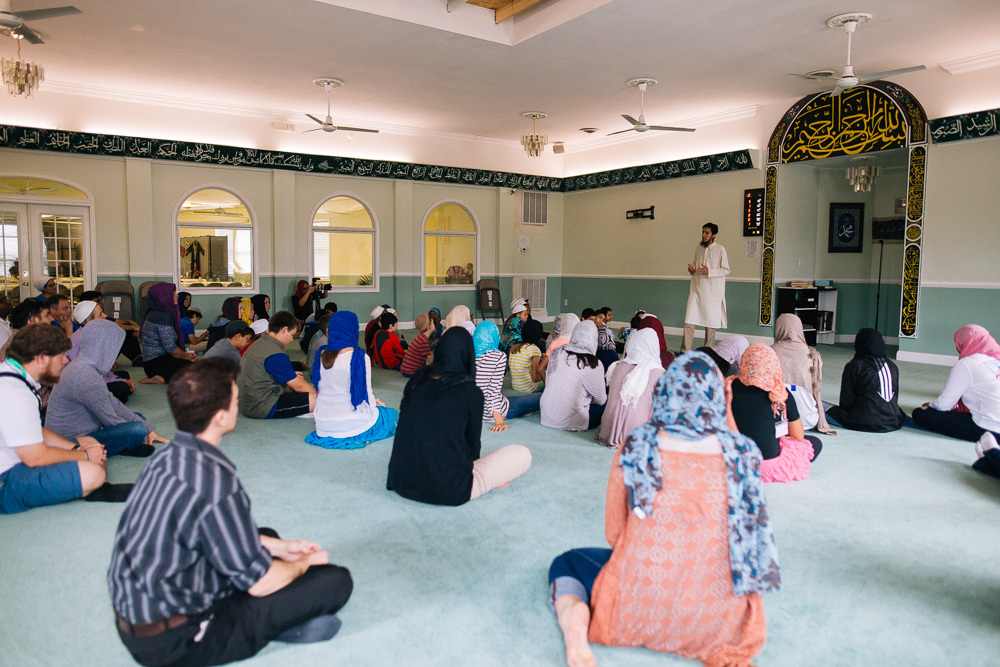
“We are particularly excited to continue to provide opportunities for EMU students to interact with people of different faiths and to develop an understanding of the importance of interfaith engagement itself,” Seidel said. “Developing the skills and sensibilities to relate across faith difference is critical to any vocation and career they may pursue.”
Spring events
CIE’s anniversary events this spring and summer include a film series, a University Colloquium March 18-19 with scholar Saher Selod, student-focused sessions on interfaith understanding, and the June 2020 interfaith peace camp for children.
A campus research project partially sponsored by the Interfaith Youth Core is also in progress this spring, with focus groups among EMU’s growing religiously diverse student body, and a goal of informing future programming.
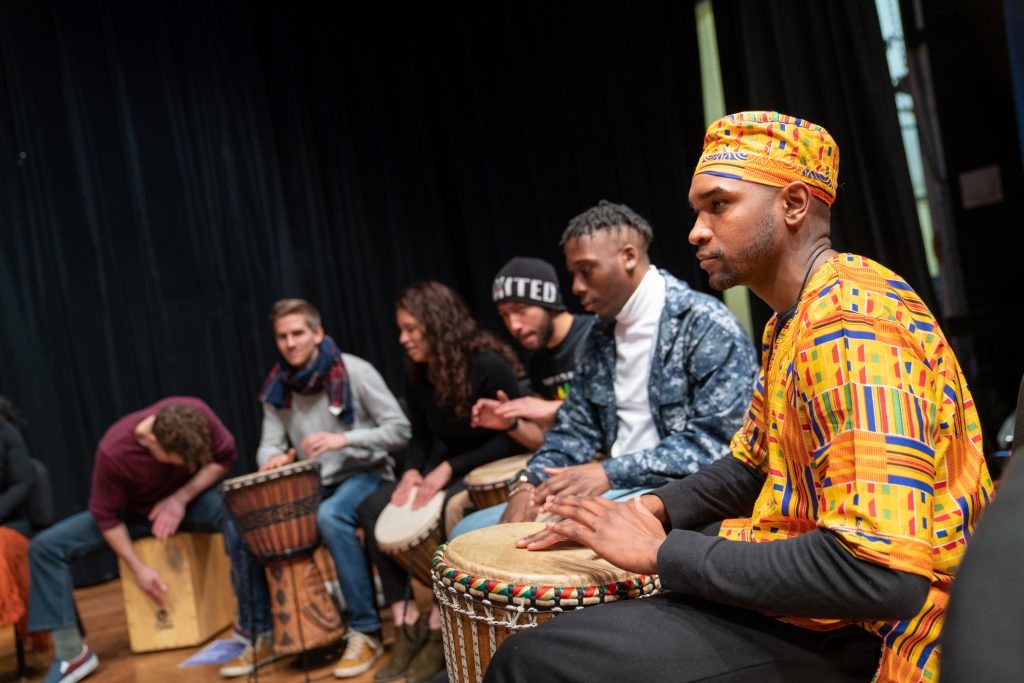
CIE’s impact also stretches beyond the Shenandoah Valley. This past fall, staff consulted on programming and attended an interfaith event in Champaign-Urbana, Illinois.
Fall events also included an anniversary reception and an October University Colloquium with Amir Hussain, a professor of theological studies at Loyola Marymount University in California. In November, CIE partnered with the local group Faith in Action and the NAACP to host a Racial Equity Institute training.
Notable accomplishments
Over the last 10 years, CIE efforts have contributed to historic accomplishments, including:
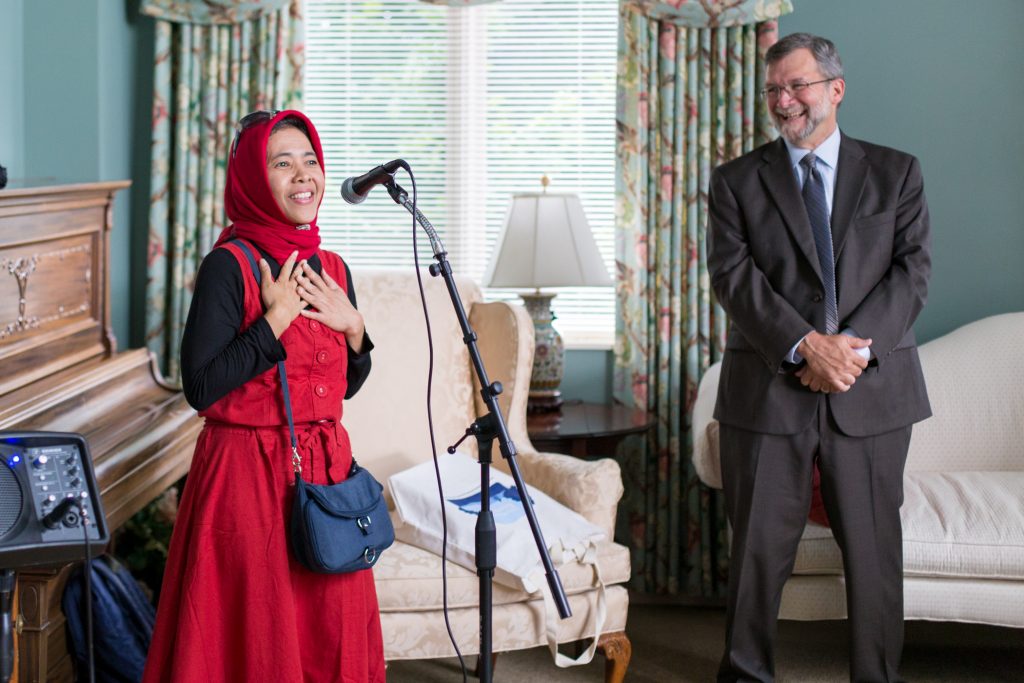
- the successful application for and hosting of EMU’s first Fulbright Scholar-in-Residence, Professor Syafaatun Almirzanah, of State Islamic University Sunan Kalijaga;
- Co-sponsorship of Shia Muslim-Mennonite Christian dialogue, the seventh of its kind over the past 16 years, bringing together Shi’a Muslim scholars from Qom, Iran, and Mennonite scholars from Canada and the U.S. – including EMU professor Peter Dula;
- Support of the Mennonite Jewish Relations Working Group of Mennonite Church USA, including research;
- The founding and ongoing support of a summer interfaith peace camp for children, a model which has been shared with other communities seeking similar educational interactions;
- A 2014 cross cultural trip to Iran for undergraduate and graduate students, a collaboration of EMU, Canadian Mennonite University, and the Imam Khomeini Education and Research Institute in Qom.
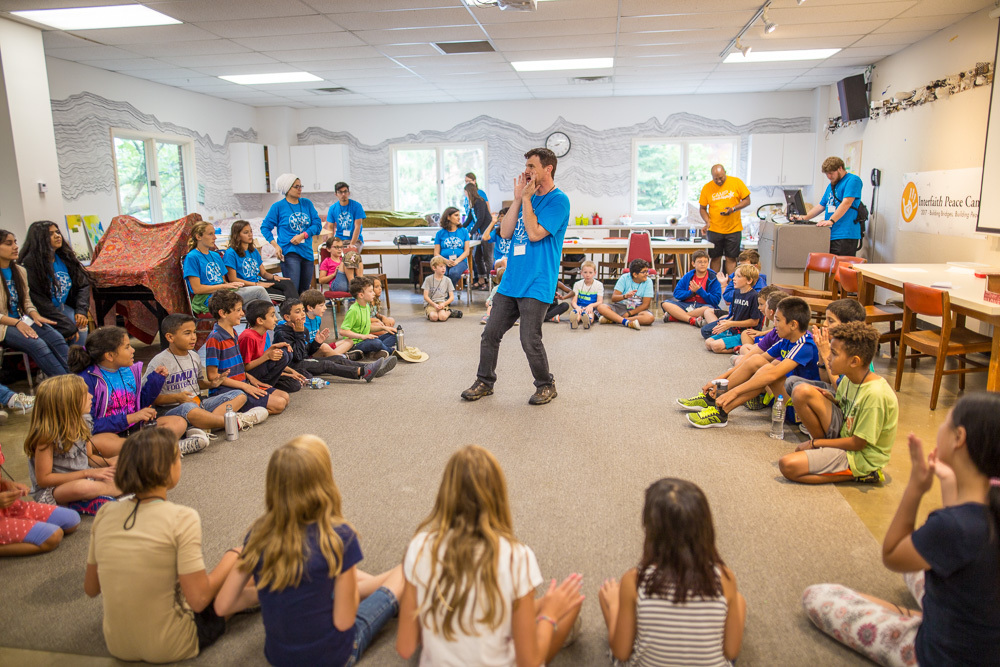
‘Brave and innovative’: tributes from the former director and scholars
The tributes from those involved over the 10 years of its existence are moving testament to the organization’s far-reaching impact and its important work today:
Ed Martin, who directed the center for its first six years, says “EMU was both brave and innovative in creating CIE. In our pluralistic society that includes persons of different faiths, it is important that graduates of EMU know something about other religions and are comfortable interacting with people of different faith traditions. Today they will meet them in a variety of contexts.”
Trina Trotter Nussbaum, associate director: When I have the chance to talk to staff and faculty at universities who are interested in doing interfaith work on their campuses, I am often met with several responses. One response is disbelief that a Christian university would have the courage and the foresight to develop and host a center devoted to interfaith engagement when many Christians in the U.S. have a lot of fear about the religious other. Many staff working in both secular and religious universities have expressed their wish to have a center at their university like we do at EMU.
I continue to be grateful to those who saw this need ten years ago, developed the possibility for a Center for Interfaith Engagement at EMU and worked to bring it to life. I am excited for what the next ten years will bring. We need holistic and restorative interfaith engagement now more than ever.
From Rabbi Dr. Niles Goldstein, visiting Jewish scholar in 2013: Working with my colleagues from other faith traditions was an enriching and inspiring experience, and I particularly enjoyed learning more about the Mennonite tradition and the spirit of ecumenical openness that made CIE possible. As a counterweight to today’s climate of tribalism and demonization of the other, the work of CIE is vital to mutual understanding, breaking down stereotypes, and building bridges between and among religious and spiritual communities. CIE has made me a better rabbi and a better man, and I will always be grateful to the men and women I worked with there and who have made such an important, relevant, and unique organization possible.
Amir Akrami, Phd, first visiting Muslim scholar at CIE from 2012 to 2015, sent hopes and prayers “that CIE will be further expanded and strengthened to be able to continue their wonderful job which aims at building bridges between people of different faiths at a time when more than before the US and the whole world need meaningful engagement, mutual understanding and friendship.”
“May God bless you and your work,” he said.
Share your CIE experience and send congratulations
To share a comment or experience or to send good wishes, visit the comment box at the end of this article. For more information, connect with CIE online at www.emu.edu/cie or donate at www.emu.edu/giving/donate.
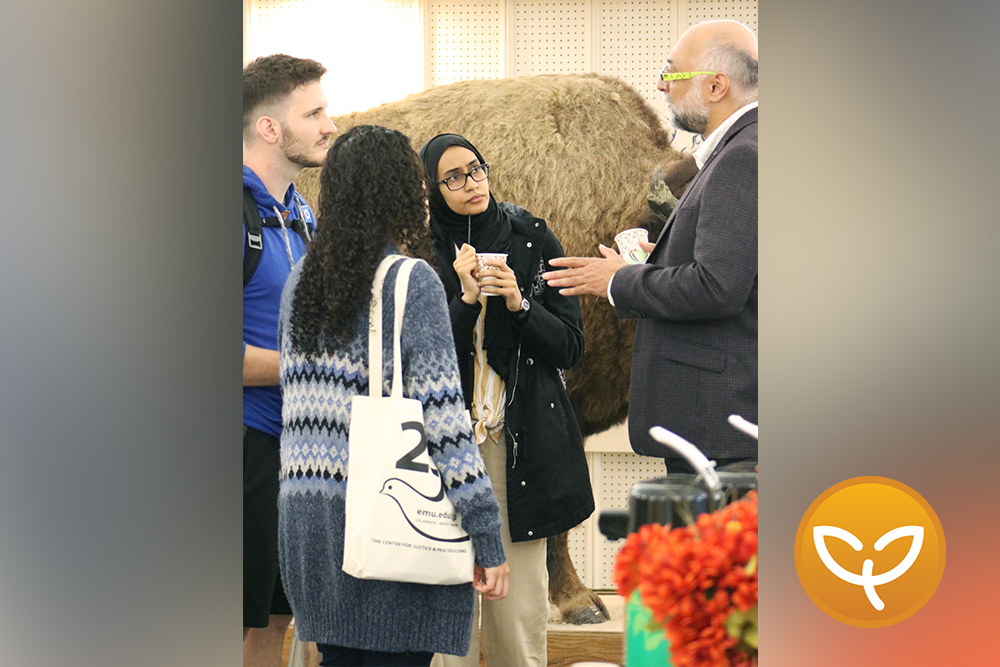
Since the early “dreaming” stages of what an interfaith center might look like at EMU, we, along with the Harrisonburg community, have enjoyed good relationships among both the Muslim and Jewish communities. When I first became involved in the 2008 launch of our center’s feasibility study, our staff valued the support and advice of many local partners as well as national and international friends. It’s been a real team effort to grow CIE to the successful and well-respected center that it is today. I feel fortunate to have helped to lay the groundwork for our interfaith center and look forward to many years of innovative interfaith community building.